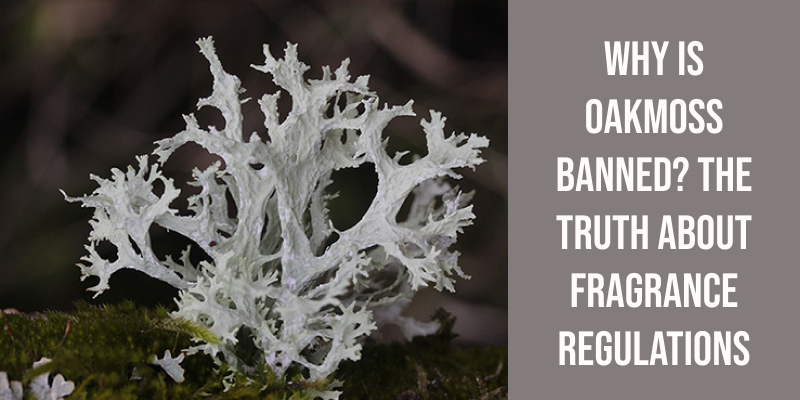Yes, Americans do use perfumes. The fragrance industry in the United States is significant, with numerous individuals of all ages and genders utilizing perfumes, colognes, and other scented products regularly. Both luxury and affordable brands occupy the market, indicating that people from different economic backgrounds have access to these products. Perfumes are commonly used for personal grooming, enhancing mood, and expressing individuality. In most cases, they are an integral part of people’s daily routines. So it’s safe to say that using perfumes is quite a popular habit among Americans.

Which Country Consumes the Most Perfume?
The United States was also found to be a major market for perfume consumption, with a growing trend towards niche and artisanal fragrances. The countrys large population and diverse culture have created a demand for a wide range of scents catering to different tastes and preferences. The rise of social media influencers and online retailers has also contributed to the popularity of fragrance in the US, as consumers seek out new and exciting options to add to their collections.
However, the top spot for perfume consumption globally goes to the United Arab Emirates, particularly the city of Dubai. The wealthy Middle Eastern nation has a strong tradition of using high-quality perfumes and essential oils, with some Arabian fragrances fetching thousands of dollars per bottle. The countrys luxury shopping malls and duty-free outlets have further fueled the demand for luxury scents among both locals and tourists.
The History of Perfume and It’s Evolution Over Time.
Perfume has a long history dating back to ancient civilizations. Over time, it’s popularity and use have evolved, from religious ceremonies to personal beauty and social status. Perfume making has become an art form, with advancements in technology allowing for new scents and ways of creating them. Today, there are countless types of perfume available, each with a unique blend of ingredients and intended purpose.
These statistics show that while the majority of both men and women use fragrance in their daily routine, there are still a significant amount of individuals who do not. Additionally, there seems to be a higher percentage of women who use perfume daily compared to men. However, it’s important to note that there are still a significant amount of men who do incorporate fragrances into their daily routine.
What Percentage of People Use Perfume?
The usage of perfume has been prevalent among human societies for centuries. It’s considered an essential part of grooming, and many people wear it to enhance their personal scent or make an impression on others. However, there’s a significant variation in the percentage of people who use fragrances, depending on various factors like gender, age, culture, and personal preference.
According to a study conducted by Statista in 2020, approximately 63% of American adults use perfume or eau de toilette. This figure is higher among women than men, as women are more likely to use fragrances as part of their daily routine. Additionally, younger people tend to use fragrances more often than older individuals, indicating that it’s a popular trend among the youth.
Overall, the percentage of people using perfume has remained relatively stable over the years, with many individuals considering it an indispensable part of their daily routine.
The History and Evolution of Perfume Usage Throughout Different Cultures and Time Periods
- Ancient Egyptians used perfume as part of their religious ceremonies and for personal use.
- The ancient Greeks and Romans were also known for using perfumes.
- During the Middle Ages in Europe, perfumes were used to mask unpleasant odors due to poor sanitation.
- In the Renaissance, perfumes were considered a luxury item and were used by the wealthy.
- In the 18th and 19th centuries, perfumes became more widely available due to advances in technology and increased production.
- Today, perfume is a multi-billion dollar industry with a wide variety of scents available.
Now that we’ve looked at the top importers of perfumes in 2021, it’s important to understand the potential barriers that these countries face when importing such products. Tariffs on perfumes, for example, can significantly increase the cost of importing such goods and affect consumer demand. In this article, we will explore the impact of tariffs on the fragrance industry and examine how various countries are navigating this challenge.
What Country Buys the Most Fragrance?
Fragrances and perfumes hold a significant place in the global cosmetics industry. A vast majority of consumers worldwide desires to wear a unique scent for personal grooming and self-expression. This trend has led to an upsurge in the demand for perfumes, which has influenced trade dynamics across the world. As such, different countries bolster their imports year on year to satisfy the growing demand for fragrances.
In 2021, the United States emerged as the largest importer of perfumes, leading the global market with imports worth $2.39B. The market is further strengthened by robust advertising and marketing campaigns by high-profile perfume manufacturers- Gucci and Tom Ford, among others.
The rise of disposable income among German consumers is the primary reason for the increased demand for luxury products, fragrances included. The country also boasts a robust online market for perfumes, which has led to a growth in e-commerce sales of perfumes.
The United Kingdom comes third in perfume importation, recording $1.04B worth of perfume imports in 202The market here is dominated by high-end perfume products, with a significant portion of the population consisting of affluent individuals. The UK also hosts a thriving tourism industry, which further bolsters the demand for perfumes.
The Netherlands ranked fourth in perfume imports in 2021, with a value of $966M. It’s challenging to determine the reason behind the strong showing by the Dutch perfume market. However, it could be due to the countrys proximity to France, the global leader in perfume manufacture.
Spain completes the list of top five perfume importers globally, recording perfume imports worth $856M in 202The Spanish perfume market is backed by a growing economy and a rising demand for international luxury brands. Economic growth has led to a rise in disposable incomes, allowing Spaniards to purchase high-end perfume products.
In 2018, the average tariff for perfumes was 15.5%, resulting in the product receiving the 174th lowest tariff classification under the HS4 product classification. The relatively low tariff implies that most countries don’t view perfumes as a significant threat to their domestic industries growth. Manufacturers enjoy easy access to global markets, which supports an internationalized perfume market. Nevertheless, some countries such as Argentina and Brazil impose tariffs on perfume imports to protect their domestic perfume industry.
Factors That Influence the Demand for Perfumes in Different Countries, Such as Culture, Climate, and Lifestyle.
- Culture
- Climate
- Lifestyle
In addition, a well-chosen fragrance can also lift a mood, evoke memories, and boost confidence, making it a powerful tool in one’s daily routine. But with so many options available, it can be overwhelming to choose the right scent for you. In this article, we’ll give you some tips on how to choose and wear the perfect fragrance for any occasion.
Do People Use Perfume Everyday?
It can boost confidence and self-esteem, and can help people feel more put-together and polished, even on a busy morning. For some, wearing a particular scent every day is a signature, a part of their persona. It can be a way of identifying and expressing themselves, as well as creating memories and associations with particular scents. Hence, it serves not only external purposes but also has a psychological effect.
Perfume has been used for thousands of years, and the practice of wearing fragrance has evolved over time. It was originally used for religious purposes, to mask unpleasant smells, and as a symbol of wealth and status. Today, fragrance has become a multi-billion-dollar industry, with many different brands, scents, and products to choose from. There are perfumes designed for different occasions and seasons. People choose scents based on their personal preferences, mood, and the message they want to convey.
But do people really use perfume every day? The answer varies from person to person. Some people wear it every day without fail, while others only wear it occasionally. Factors such as lifestyle, job, and personal preference can influence how often someone wears fragrance. Busy parents or those with sensitive skin may opt for more natural or subtle scents, while those who work in customer service or require an element of glamour for their job may opt for bolder scents to make a lasting impression.
Regardless of frequency, wearing perfume can be a pleasant and enjoyable experience for many. It can be an indulgent treat, a way to pamper oneself, or to add a finishing touch to an outfit. With so many options available, perfume has become a form of self-expression, allowing people to express their individuality and stand out from the crowd. For those who enjoy the ritual of getting ready in the morning or the subtle sensory experience of wearing a scent, perfume can be a small but significant part of ones daily routine.
The Difference Between Perfume, Eau De Parfum, Eau De Toilette, and Other Fragrance Types.
- Perfume: contains the highest concentration of fragrance oils, typically around 20-30%, which makes it the most long-lasting and potent fragrance type.
- Eau de parfum: contains around 15-20% fragrance oils and is slightly less concentrated than perfume, making it a great option for those who want a long-lasting scent without it being too overpowering.
- Eau de toilette: contains around 5-15% fragrance oils and is a lighter, more refreshing fragrance option that’s great for everyday wear.
- Eau de cologne: contains around 2-5% fragrance oils and is the lightest and most refreshing fragrance option, perfect for hot summer days or after a workout.
- Eau fraiche: contains the smallest percentage of fragrance oils, typically only around 1-3%, and is meant to be a very subtle and light fragrance option.
- Body mist: contains a low concentration of fragrance oils and is meant to be used all over the body for a light, refreshing scent.
The fragrance industry has long been dominated by women as the biggest consumers. But have you ever wondered what drives them to purchase perfumes so frequently? And with men seemingly not as interested, does it mean the industry is losing out on potential sales? Let’s delve deeper into these questions and explore the world of perfume buying habits.
Who Buys the Most Perfume in the World?
According to a report by Euromonitor International, the beauty and personal care industry has undergone a significant transformation over recent years, with sales of fragrance products experiencing a steady rise globally. Despite the global COVID-19 pandemic causing a dip in sales in certain regions, fragrances continued to be in high demand, with women being the primary consumer group.
Apart from the U.S., women have also been observed to be the largest purchasers of perfume in Europe, Asia Pacific, and Latin America. In these regions, women often use fragrances as a way to express themselves and enhance their overall appearance. Research has shown that a womans choice of fragrance can have a significant impact on her confidence and mood, making it a valuable tool in both personal and professional settings.
Additionally, the fragrance industry has made a conscious effort to cater to women, with marketing campaigns and packaging designed to appeal to their unique preferences and tastes. Female celebrities are often used as brand ambassadors for fragrances, with many successful perfume lines created in collaboration with well-known names in the fashion and entertainment industries.
However, men aren’t far behind in their interest in fragrances, with the market for mens fragrances projected to experience significant growth in the coming years. With the rise in popularity of grooming and self-care among men, fragrances have become an essential part of their personal care routines. In recent years, many brands have also introduced unisex fragrances, catering to a wider audience.
The industrys continued growth and success will depend on it’s ability to diversify it’s offerings and cater to the changing needs and preferences of it’s customers.
The Rise of Niche and Independent Fragrance Brands.
- Olfactive Studio
- Byredo
- Le Labo
- Frederic Malle
- Diptyque
- Tom Ford Private Blend
- Imaginary Authors
- Aesop
- The Different Company
- Eau d’Italie
- Juliette Has a Gun
- Nasomatto
- Francis Kurkdjian
- Escentric Molecules
Source: Perfume Market Size, Share & Trends Analysis Report, 2030
Transition: While many people enjoy wearing perfume as a way to add a signature scent to their personal style, opting out of wearing fragrance altogether doesn’t mean you’ve to sacrifice a pleasant aroma. There are plenty of alternatives that can help you embrace a fragrant life without the use of traditional perfumes, such as room sprays and scented candles. However, if you do choose to use fragrances on your body, it’s important to stick to products that are specifically made for skin and hair to avoid any potential irritations or negative reactions.
Is It OK Not to Wear Perfume?
The decision on whether or not to wear perfume is a personal one. Some people love the idea of having a signature scent while others prefer to go without. It’s a matter of individual preference, and theres really no right or wrong answer. In fact, some people find that they prefer not to wear perfume at all due to allergies or sensitivity to certain ingredients.
If you do choose to wear perfume, it’s essential to choose a fragrance that works well with your body chemistry. Everyones skin has a unique scent, and certain fragrances may react differently with different individuals. Finding the right fragrance requires a bit of trial and error, so it’s best to test multiple scents before settling on one.
The idea that perfume is necessary to lead a fragrant life is a bit of a misconception. While it’s true that certain scents can enhance our environment and mood, theyre not the only way to create a pleasant aroma. Burning candles, using essential oils, and using room sprays are all great ways to infuse your environment with fragrance without having to apply it directly to your skin.
Spraying too much can be overwhelming and even offensive to those around you. A little can go a long way, and it’s best to apply perfume to pulse points such as the wrists, neck, and behind the ears for maximum impact.
When it comes to choosing a fragrance, it’s important to choose one that’s made specifically for skin or hair. While it might seem tempting to use a room spray or other scented products, these aren’t designed for use on the body and can cause skin irritation or other problems. Stick to products that are labeled as perfume, Eau de parfum, or Eau de toilette for best results.





